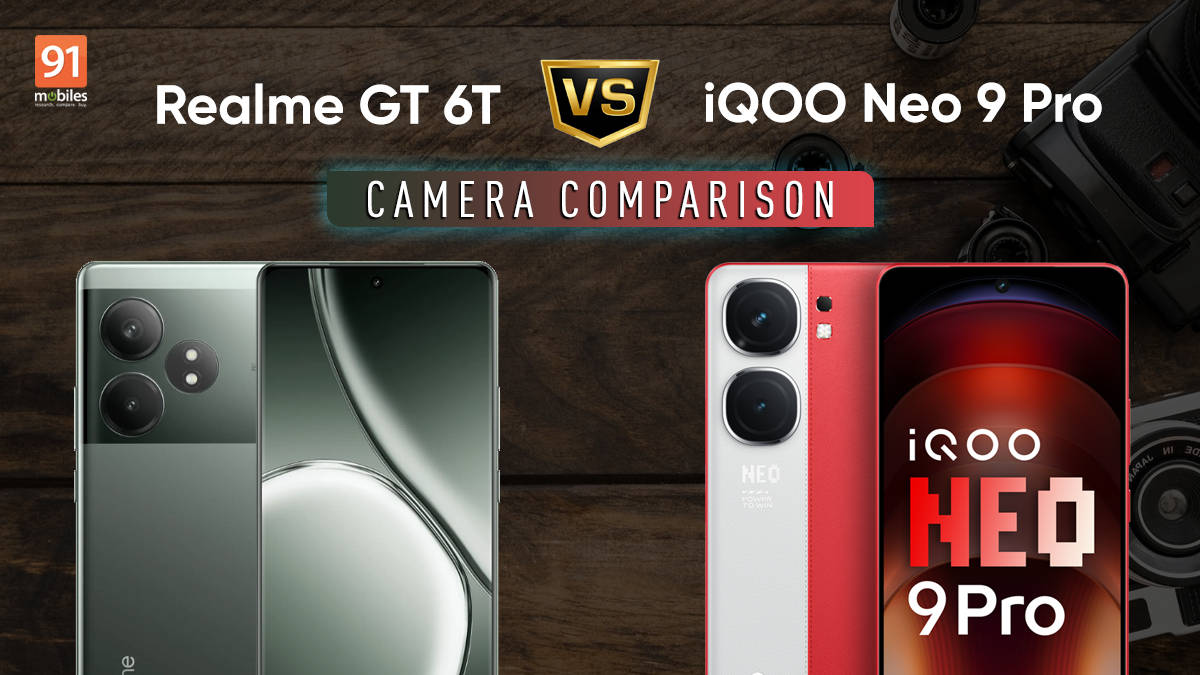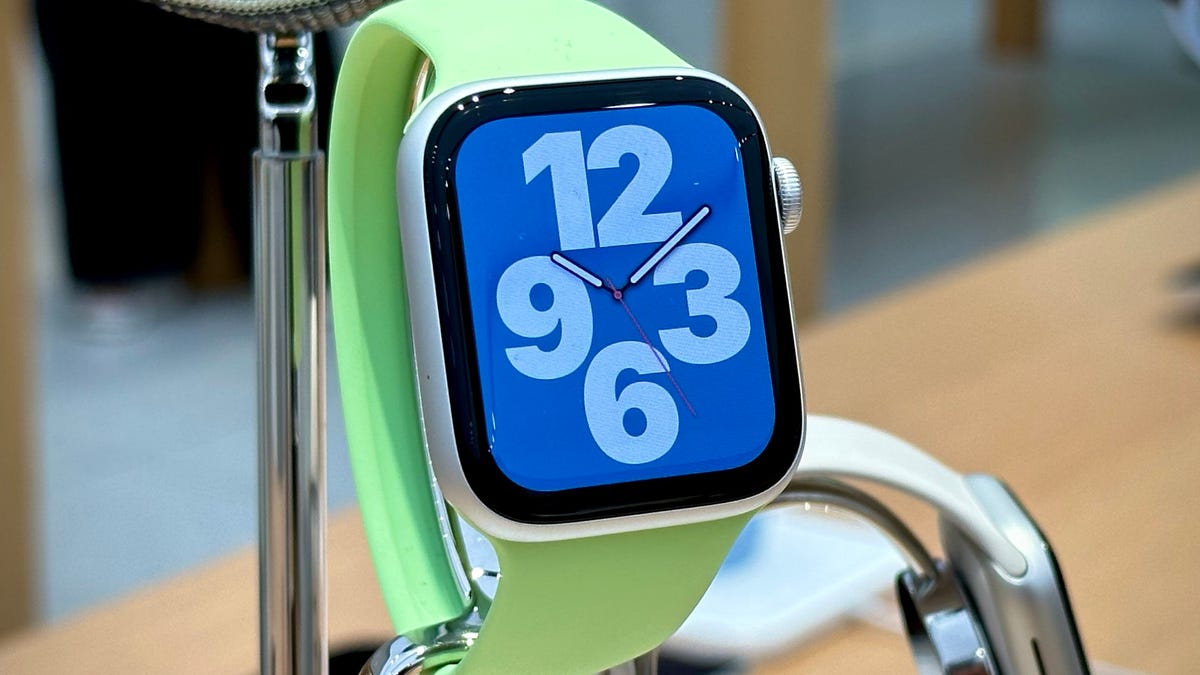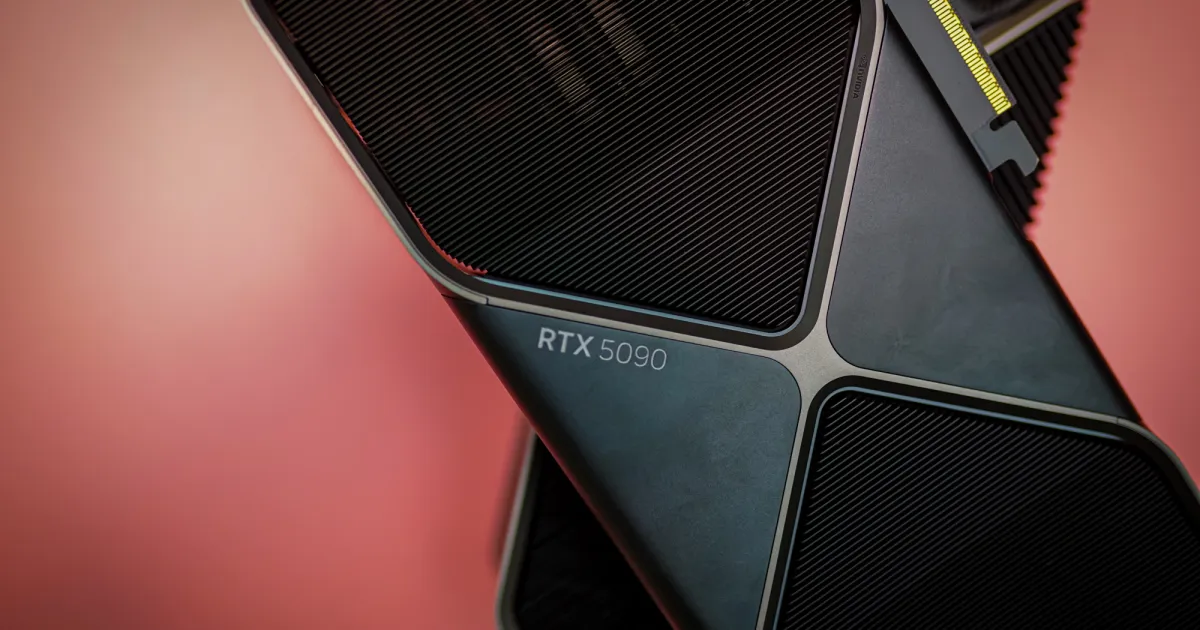
The Realme GT 6T(review) and iQOO Neo 9 Pro (review)are among the best smartphones available for performance-focused customers with a budget of up to Rs 40,000. Both smartphones can be excellent options for those who prioritise long battery life and fast charging speeds. While there’s a big focus on performance, makers of both smartphones promise a reliable camera experience.
Interestingly, the duo features a dual-camera system on the back, comprising a 50MP primary sensor and an 8MP ultra-wide camera. Both phones have now ditched the third sensor, a norm until a few months back. Which one offers a better camera experience? Here’s a camera comparison between Realme GT 6T and iQOO Neo 9 Pro.
Realme GT 6T vs iQOO Neo 9 Pro camera specifications
| Realme GT 6T | iQOO Neo 9 Pro |
| 50MP primary camera (Sony LYT-600 sensor) | 50MP primary camera (IMX 920 sensor) |
| 8MP ultra-wide camera | 8MP ultra-wide camera |
| 32MP front camera | 16MP front camera |
Daylight
By default, the Realme GT 6T captures photos with a warm tone, while the iQOO Neo 9 Pro tries to mimic true-to-life colours but with prominent shadows and colours. As a result, photos taken by the latter may look more dramatic and, at times, appealing.


If you notice these shots, captured in broad daylight, it’s easy to distinguish the treatment by both smartphones.
The dynamic range and overall colour balance look better in the image with the Realme GT 6T. The colours on the iQOO Neo 9 Pro are boosted, while contrast is by default high. By no means does the image look bad, but prominent shadows lead to the average dynamic range.
Both smartphones capture decent details of the tiles on the floor and the red building. The Realme GT 6T does a better job of capturing details of black tiles near the fountain as it does not go overboard with contrast, unlike the iQOO Neo 9 Pro. The GT 6T even detects the accurate colour of the sky.


If you use the 2x mode for the primary, you will notice a similar colour science.
Winner: Realme GT 6T
Ultra-wide
There’s a bit of inconsistency in the ultra-wide samples compared to shots with the primary camera. Both phones continue to apply the same amount of contrast and highlights, though the colour treatment is different.


The image with the Realme GT 6T features popping colours, while iQOO Neo 9 Pro’s photo looks closer to real life. That way, there’s more scope to try different types of editing on iQOO’s image.
Both smartphones capture an average amount of detail in elements such as the floor, building bricks, and tree leaves. The iQOO Neo 9 Pro does a relatively decent job with the overall sharpness of the photo, which is why I prefer its image. However, if you go with the Realme GT 6T for its vibrant approach, that’s fine.
Winner: iQOO Neo 9 Pro
Portrait
The Realme GT 6T and iQOO Neo 9 Pro leverage the primary camera from portrait shots.


At first glance, both images will appear similar, but you start to notice a similar colour science as in the daylight shots. The Realme GT 6T has again applied high saturation (in a good way), while the iQOO Neo 9 Pro offers a balanced tonality. Both phones do an average job when it comes to capturing facial details, though I am happy with the skin colour detection, even if it’s slightly brightened.
The bokeh effect, after adjusting the depth to f/2.2, is similar in both images. However, the iQOO Neo 9 Pro does a better job with edge detection.
Winner: iQOO Neo 9 Pro
Selfie
For selfies, the Realme GT 6T, by default, offers a wider field-of-view, which can be useful for group shots. After enabling the portrait mode, the iQOO Neo 9 Pro again did a better job at edge detection.


However, the colours in Realme GT 6T’s image look more natural. The phone also does a better job of capturing facial details under bright lighting conditions.
Winner: Realme GT 6T
Low-light
Moving to low-light shots, both smartphones deserve credit for their treatment and minimising noise reduction.


At first glance, both photos may look more or less similar, but you’ll notice prominent shadows in the image with iQOO Neo 9 Pro. That’s also because these night shots are captured with the primary camera, hence the same software optimisation. It also handles lens flare and over-exposed light more efficiently than the Realme GT 6T.
Overall, the image from the iQOO Neo 9 Pro exhibits better sharpness and highlights, making the shot look more social media-ready. That’s also because it packs a bigger primary camera sensor. Notably, it also produced a starburst effect, which looks quite impressive.
Winner: iQOO Neo 9 Pro
Low-light (Night mode enabled)
Enabling night mode on the Realme GT 6T does not significantly improve the image, though background signs are more readable. iQOO Neo 9 Pro’s image looks more dramatic, but it offers a much improved dynamic range. Moreover, the sharpness of the leaves and walls becomes more prominent after enabling night mode.


The phone handles lens flare much better, and we continue to see the impressive starburst effect on the right side.
Winner: iQOO Neo 9 Pro
Verdict
Based on our results, the iQOO Neo 9 Pro does a better job in low light, and its shots in daylight are good, if not better. The Realme GT 6T offers a decent dynamic range and a warm tone in most of its photos, which may appeal to some users. But to capture social media-ready images without much editing, the iQOO Neo 9 Pro does relatively better.
Other things to keep in mind are:
- The iQOO Neo 9 Pro supports 8K recording, though the best stability is achieved in Full-HD resolution at 60fps. The Realme GT 6T only supports 4K recording at 60fps.
- From the front camera, the Realme GT 6T offers better stabilisation. It also supports 4K recording at 30fps, while the iQOO Neo 9 Pro gets only Full-HD recording.






